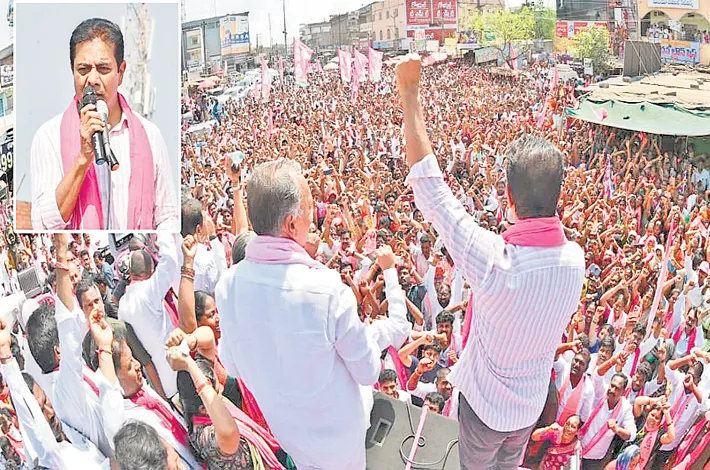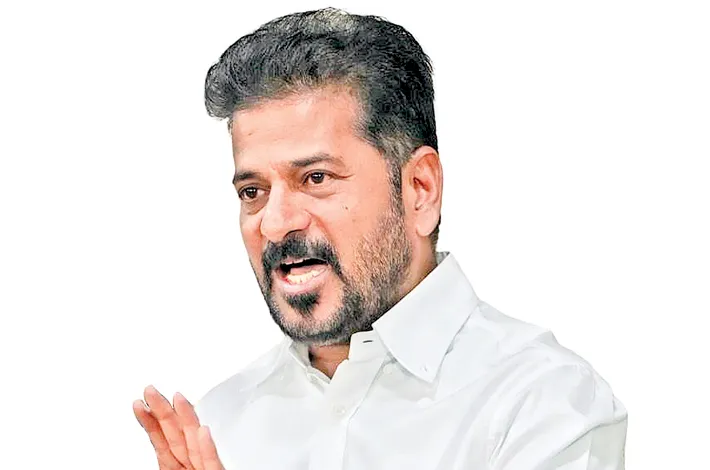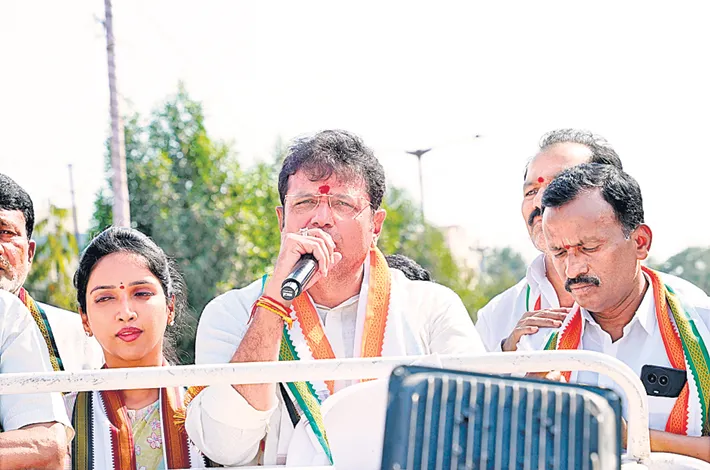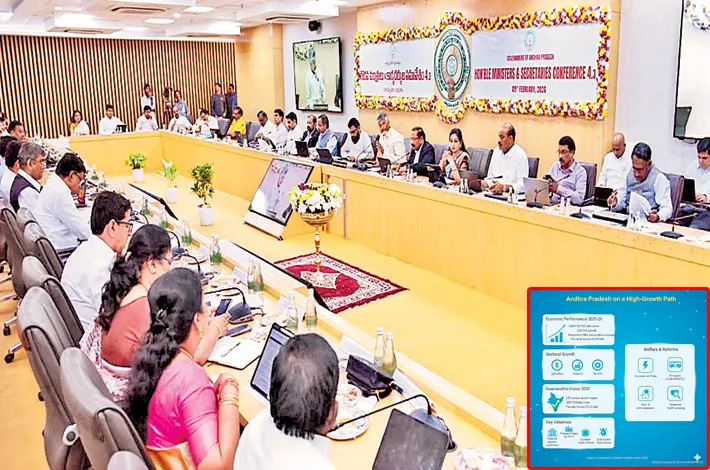Rs. 7,000 crore paddy scam: Uttam acts tough
05-06-2025 12:00:00 AM
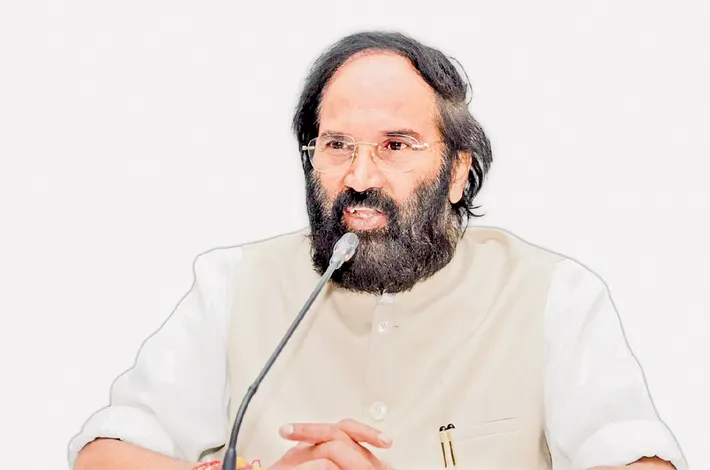
Chief minister Revanth reddy advices stern action
THE CURIOUS CASE OF MISSING PADDY
■ In February 2024, the state government auctioned 35 lakh metric tons of paddy to four Central Government undertakings, at a rate of approximately Rs. 1,900 per quintal
■ The successful bidders were tasked with procuring the paddy from millers, who were responsible for storing and supplying the stock.
■ The bidders managed to procure 12 lakh metric tons and sold it at Rs. 2,400 per quintal, earning a profit of Rs. 500 per quintal
■ The government received payments for this portion, amounting to Rs. 2,280 crore (12 lakh metric tons at Rs. 1,900 per quintal).
■ The bidders have failed to remit the amount for remaining 23 lakh metric tonnes of paddy.
metro india news I hyderabad
In a shocking revelation that has sent ripples through the agricultural and financial sectors, the state government is grappling with a massive Rs. 7,000 crore scandal involving the auction of 35 lakh metric tons of paddy.
The controversy, which has exposed systemic failures in oversight and enforcement, centers on unpaid dues by bidders, missing paddy stocks, and alleged mismanagement by millers. As the government takes a hard stance, issuing stern warnings and threatening severe penalties, the situation remains a complex web of financial loss, legal battles, and potential criminal charges.
In February 2024, the state government auctioned 35 lakh metric tonnes of paddy, primarily to four Central Government undertakings, at a rate of approximately Rs. 1,900 per quintal. The successful bidders were tasked with procuring the paddy from millers, who were responsible for storing and supplying the stock. The bidders managed to procure 12 lakh metric tons and sold it at Rs. 2,400 per quintal, earning a profit of Rs. 500 per quintal, which also covered additional overheads and administrative costs. The government received payments for this portion, amounting to Rs. 2,280 crore (12 lakh metric tons at Rs. 1,900 per quintal).
However, the deal unraveled for the remaining 23 lakh metric tons, valued at approximately Rs. 7,000 crore. The bidders have failed to remit this amount to the government, citing their inability to procure the balance stock from millers at a profitable margin. Investigations have revealed a more troubling issue: much of the paddy stock with millers appears to be non-existent. Sources indicate that millers illegally sold significant quantities of the paddy in the open market, diverting the funds for personal use. This has left bidders unable to fulfil their contractual obligations and the government facing a staggering financial shortfall.
The tender conditions explicitly stated that bidders were responsible for physically inspecting the paddy stocks before submitting their bids, and no complaints regarding stock quantity or quality would be entertained post-auction. Legally, the bidders have no grounds to withhold payment, as the contract mandates them to pay the full amount for the allocated 35 lakh metric tons within a stipulated 90-day period. To secure the contract, the bidders provided a Rs. 300 crore bank guarantee, which now hangs in the balance as the government threatens to encash it.
The financial implications for the state are severe. The non-payment of Rs. 7,000 crore has not only deprived the government of critical revenue but also resulted in an estimated annual interest loss of Rs. 700 crore. The bidders, having already reaped substantial profits from the 12 lakh metric tons they successfully procured and sold, now face accusations of exploiting the system by delaying payments for the remaining stock. Meanwhile, millers are under scrutiny for their alleged role in selling off the paddy stocks, with many facing potential criminal charges for fraud and misappropriation.
The government finds itself in a classic "catch-22" situation. On one hand, it is under pressure to recover the Rs. 7,000 crore to mitigate the financial damage and maintain public trust. On the other hand, enforcing strict measures against the bidders could lead to their default, potentially destabilizing the agricultural procurement system. The millers' actions have further complicated the issue, as their alleged misconduct has left the bidders unable to fulfil their obligations.
The government has taken a tough stance, issuing notices to the agencies involved, demanding immediate payment of the outstanding amount. Failure to comply could result in severe consequences, including encashment of the Rs. 300 crore bank guarantee, imposition of hefty penalties, and blacklisting of the defaulting parties from future tenders.
The scandal has sparked widespread concern about the long-term implications for the agricultural sector, particularly for farmers who rely on the government’s procurement system for their livelihoods. The state government, under increasing pressure to resolve the crisis, is exploring options to recover the funds and hold the responsible parties accountable. Discussions are underway to find a balanced solution that protects the interests of the government, the industry, and the farmers. Proposals include restructuring the payment terms, imposing stricter oversight on millers, and introducing more robust mechanisms to verify stock availability before auctions.
As the state government, led by Chief Minister Revanth Reddy and Minister Uttam, taking decisive action to address this crisis, the focus remains on recovering the Rs. 7,000 crore and restoring trust in the system. The coming weeks will be critical as negotiations continue and legal proceedings loom. The outcome of this scandal will likely shape the future of agricultural procurement in the state, with far-reaching consequences for all stakeholders involved. For now, the government’s tough stance signals its determination to tackle the issue head-on, ensuring that those responsible for the missing paddy and the financial loss face the full weight of accountability.





